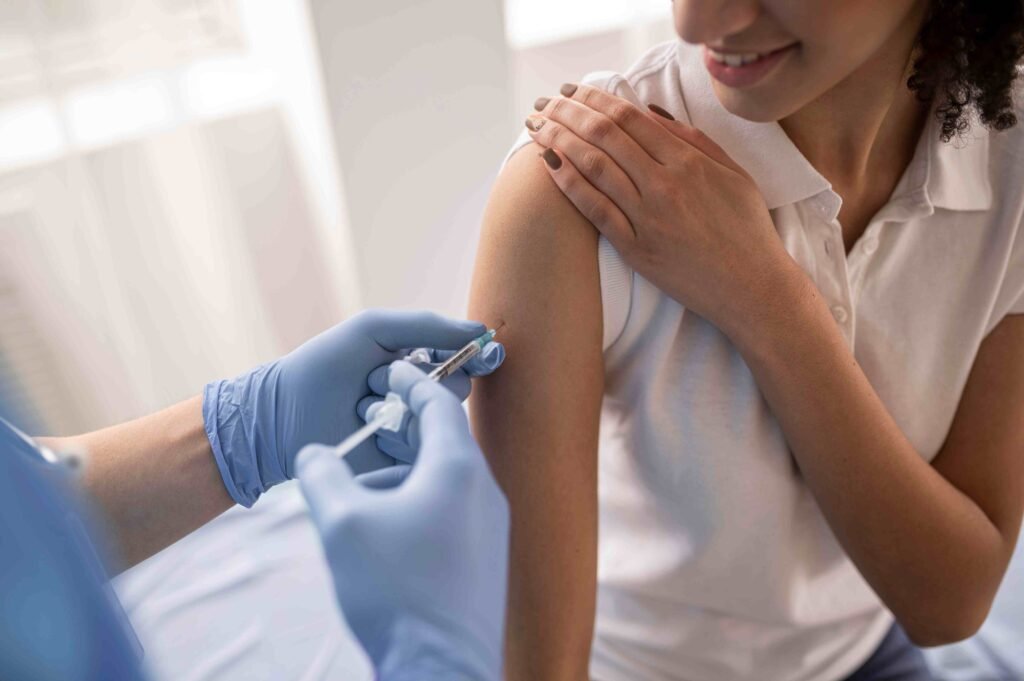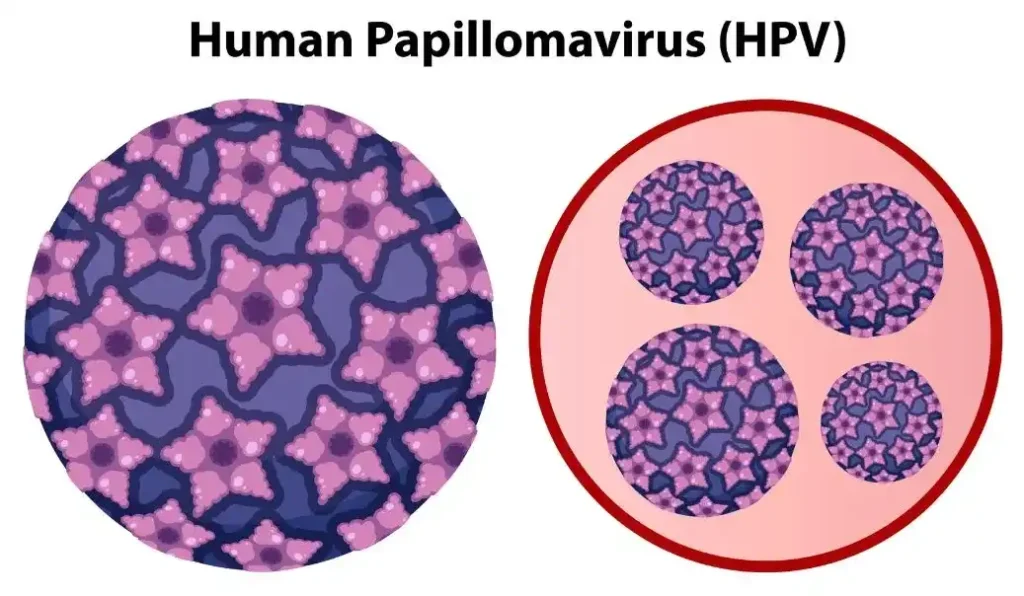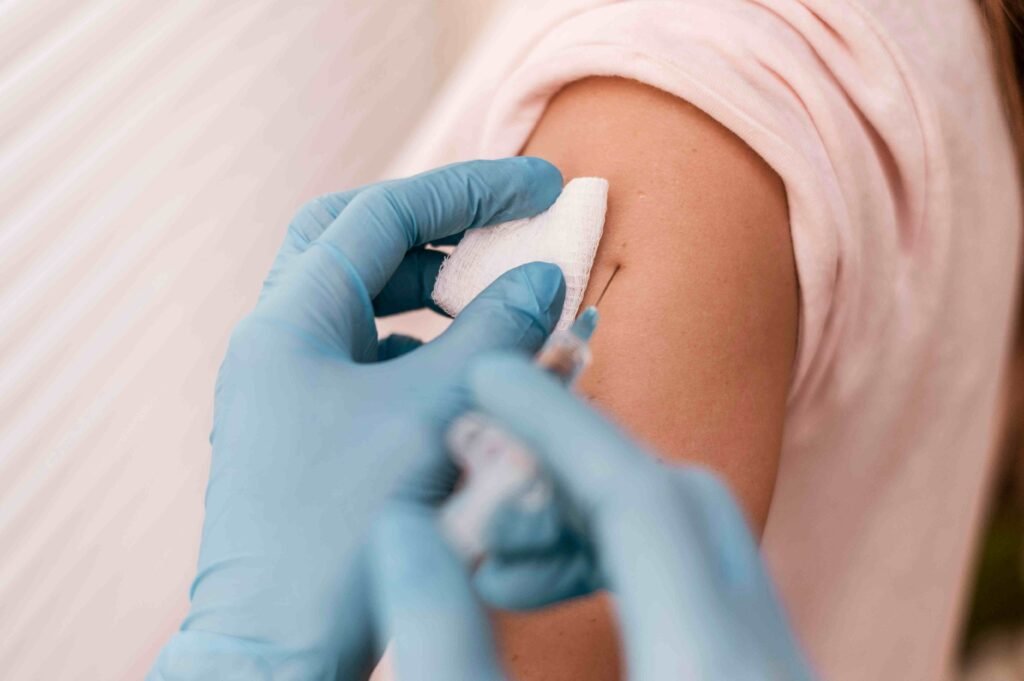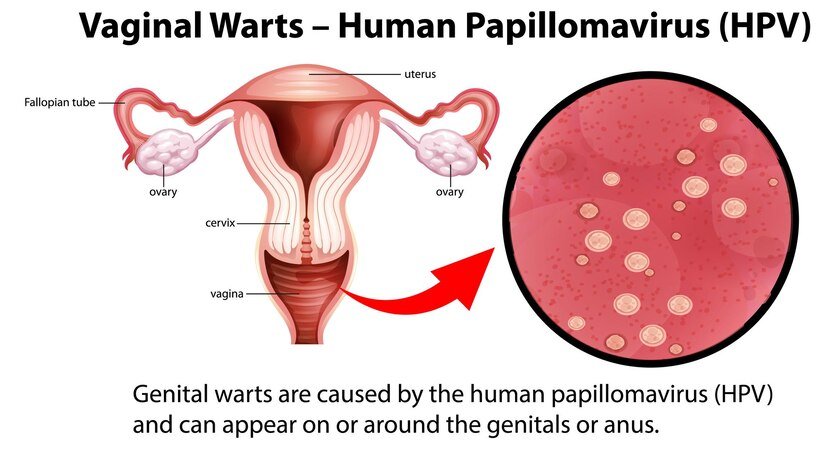
What is HPV and why is it important to get vaccinated?
In this blog, we’ll delve into everything about human papillomavirus (HPV), and its symptoms and explore why vaccination against HPV is essential. Are you looking for HPV Vaccination in Noida? Consult Dr. Neha Gupta for expert advice and vaccination services.
What is HPV?
HPV stands for human papillomavirus virus. It is one of the most commonly sexually transmitted infections. It is a group of viruses that affect the skin and mucous membranes of humans and can occur in both men and women. This condition is primarily transmitted through sexual contact.
There are different HPV types; some are considered “low risk” and some are considered “high risk”. The low-risk HPV types can cause genital warts and high-risk HPV can increase your risk of cervical cancer. To protect yourself from HPV, you can go for HPV vaccination in Noida.

How Do You Get HPV?
- HPV can spread through vaginal, oral, or anal sex. It is transmitted from person to person through prolonged skin-to-skin contact in the genital area. You can also get HPV from a partner who has no symptoms, such as genital warts (small bumps that appear in the genital area).
- Engaging in sexual activity with infected persons also increases the risk of developing human papillomavirus.
- HPV can also pass on through genital-to genital contact even without penetration.
- In some cases, HPV may also pass on from an infected mother to their child during pregnancy or childbirth.
- Individuals engaging in unprotected sex and having multiple sexual partners can also develop HPV
- Not getting vaccinated against HPV can also increase the likelihood of developing the human papillomavirus.
Why Is It Important to Get Vaccinated?
HPV vaccination is an effective way that can help reduce the risk of HPV-related cancers. Vaccination against human papillomavirus is also essential to prevent the transmission of HPV to sexual partners and many other reasons. Here’s a brief overview of several reasons why vaccination for human papillomavirus is important.

- Prevention of HPV-related cancers
Vaccination is important as HPV can lead to several types of cancers but only a few like cervical cancer can be detected with screening tests and other cancers often go undiagnosed. Therefore, getting vaccinated against HPV can reduce your risk of developing other cancers related to human papillomavirus.
- Prevention of transmission
When you’re vaccinated then there is less chance of transmitting HPV to your sexual partner. Hence, it acts as a preventive measure against HPV-related diseases in others.
- Long-term health benefits
Getting vaccinated can provide long-lasting protection against HPV as it triggers the body’s immune system to produce antibodies to fight against HPV. When the body is exposed to HPV in future then the antibodies clear the infection and reduce the risk of developing HPV-related long-term health issues.
- Protection against genital warts
Through vaccination, you will be protected against genital warts as the vaccine for HPV can stimulate the body’s immune system to produce antibodies that specifically target against the strains of HPV that cause genital warts. Reach out to Dr. Neha Gupta to get HPV Vaccination in Noida.

Also read : Endometriosis treatment in Noida by Dr. Neha Gupta
HPV Vaccination in Noida
Human Papillomavirus can lead to various health issues like cervical cancer, genital warts and other related cancers. However, vaccination against HPV provides an effective means of prevention from HPV-related diseases. The earlier someone gets vaccinated before potential exposure, the better the immune system can develop protection. Vaccination is recommended between 11-13 years for this reason. If you are having any concern related to HPV consider consulting Dr. Neha Gupta to get HPV vaccination in Noida.